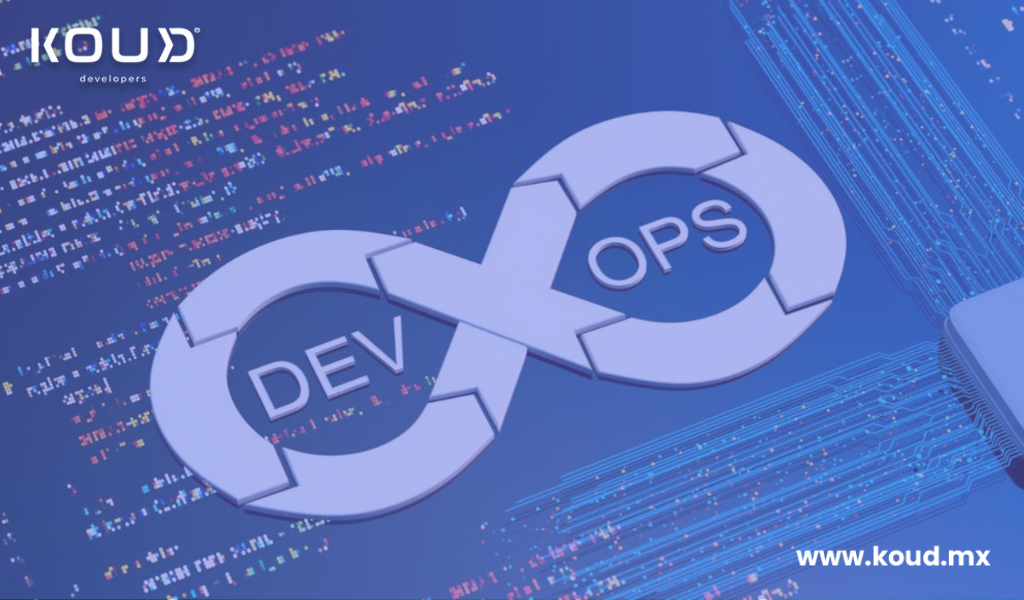What Is DevOps and How Does It Facilitate Collaboration Between Development and Operations to Deliver Quality Software?
In the world of software development, efficiency, speed, and quality are essential to meet customer expectations and stay competitive in the market. This is where DevOps plays a crucial role, fostering close collaboration between development (Dev) and operations (Ops) teams to ensure that software is not only built quickly but also meets quality standards. But how exactly does DevOps enhance this collaboration? Let’s find out.
What Is DevOps?
DevOps is a set of practices and tools that integrate development and operations to improve collaboration, communication, and continuous software delivery. It is based on the philosophy of working in a more agile and collaborative manner among development, operations, and other departments involved in the software lifecycle. The methodology seeks to automate repetitive tasks and promote collaboration to reduce development cycles while improving product quality.
At the heart of DevOps is continuous delivery (CI/CD), a process that enables applications to be developed, tested, and deployed quickly and efficiently. This, in turn, helps detect errors early and make constant corrections.
How DevOps Facilitates Collaboration
The foundation of DevOps is the joint work between development and operations teams, which traditionally worked separately. DevOps breaks down these silos and promotes a culture of collaboration, shared responsibility, and constant feedback. Here’s how it achieves that:
Process Automation
DevOps enables the automation of repetitive and error-prone tasks. This includes the automation of testing, deployments, and infrastructure configuration, eliminating manual tasks and reducing the risk of human error. Automation facilitates continuous delivery (CI/CD), allowing new features and updates to be released faster and without disruptions.
Fast Feedback
DevOps promotes rapid feedback cycles, meaning developers receive almost immediate comments on their code. This early feedback helps identify and correct errors more efficiently. It also allows development teams to make continuous adjustments based on test results, ensuring the software is more robust before being released.
Increased Visibility and Transparency
Development and operations teams gain greater visibility into the software lifecycle. This is achieved through monitoring and management tools that provide real-time information on application performance, deployment status, and potential infrastructure issues. This shared visibility ensures that problems are detected early and that all team members work toward the same goal.
Culture of Shared Responsibility
One of the key principles of DevOps is shared responsibility. While traditionally development teams were responsible for the code and operations teams were responsible for the infrastructure, in DevOps both areas work together throughout the entire software lifecycle. This fosters a culture of collaboration, where issues are addressed collectively and not passed from one team to another.
Integration of Tools and Processes
DevOps tools allow the integration of various processes that were previously handled separately. For example, version control, automated testing, and infrastructure management tools are integrated into a continuous workflow, optimizing communication and efficiency between teams. This ensures that all aspects of the software lifecycle are aligned and managed consistently.
Benefits of DevOps for Software Quality
Improved collaboration between development and operations teams not only speeds up software delivery but also helps improve the quality of the final product. Here are some key benefits:
Error Reduction
With automated processes and continuous testing, errors are detected more quickly, allowing them to be fixed early before affecting the end user. This improves the stability and reliability of the software.
Faster Deployment
DevOps enables frequent deployments, meaning new features and improvements reach users faster. Continuous delivery integration ensures smooth, interruption-free deployments, providing a more satisfying user experience.
Increased Security
By integrating security testing into the development lifecycle, DevOps helps identify vulnerabilities from the earliest stages of development. This ensures the software is secure, reducing the risk of security breaches and compliance issues.
Better Performance
Collaboration between development and operations also allows for better performance optimization. Teams can work together to fine-tune code and infrastructure, ensuring the software is as efficient as possible in terms of speed and resource usage.
How DevOps Drives High-Quality Software Delivery
DevOps has transformed the way development and operations teams work together to deliver high-quality software. By breaking traditional silos and fostering automation, collaboration, and constant feedback, DevOps enables organizations to deliver software faster, with higher quality and greater security. Enhanced team collaboration not only optimizes the development process but also contributes to a much more satisfying end-user experience.
If your team has not yet adopted DevOps, now is the perfect time to start reaping its benefits. The future of software development depends on the collaboration and efficiency that DevOps can offer!
Empresa
- Nosotros somos
Somos una empresa mexicana con más de 12 años de trayectoria en la industria
Servicios
- Desarrollo de Software a la medida
- Staffing TI
- Headhunting TI
Contacto
- +52 1 33 2342 9770
- letskoud@qa.koud.mx
- Av. Patria 2085 int. 175 piso 1 puerta de hierro Zapopan Ja. 45116

